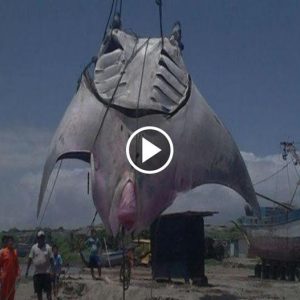Mali, an elephant who lived in isolation for almost half a century, passed away at the age of 49 due to congestive heart failure.
Known as the “world’s saddest elephant,” Mali spent her life alone in a cramped enclosure at the Manila Zoo.

Just before her death, she mustered the strength to interact with visitors who came to see her, highlighting the impact of her solitary existence.
1977 Mali arrived in the Philippines from Sri Lanka as a gift to Imelda Marcos. Despite being surrounded by people, she lived without companionship, earning her the title of one of the saddest elephants by animal rights group PETA.

Manila Mayor Honey Lacuna shared the news of Mali’s passing, expressing sadness over the loss.
Mali underwent an autopsy, revealing congestive heart failure, cancer, poor blood circulation, and other health issues.
Despite calls for her transfer to a sanctuary, these requests were denied, raising concerns about her welfare. PETA and others advocated for her freedom, but their efforts were unsuccessful.

After Mali’s passing, PETA criticized the neglect and greed that led to her lonely life and eventual death. Mali’s captivity deprived her of natural behaviors, and her health issues were ignored.
PETA urged people to boycott establishments that exploit animals for entertainment, emphasizing the social nature of elephants and their endangered status.
Asian elephants like Mali face threats such as habitat destruction and illegal hunting, contributing to their decline.

Protecting these animals requires collective action to preserve their natural habitats and prevent exploitation.








